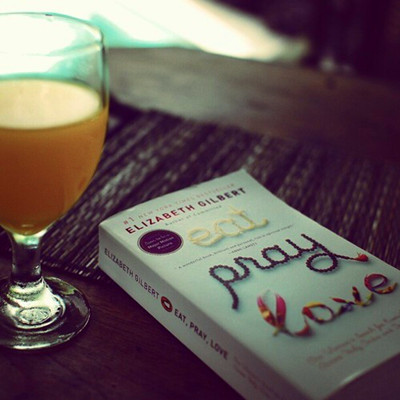(单词翻译:单击)

Buddhist lore has a story about the moments that followed the Buddha's transcendence into enlightenment. When—after thirty-nine days of meditation—the veil of illusion finally fell away and the true workings of the universe were revealed to the great master, he was repor-ted to have opened his eyes and said immediately, "This cannot be taught." But then he changed his mind, decided that he would go out into the world, after all, and attempt to teach the practice of meditation to a small handful of students. He knew there would be only a mea-ger percentage of people who would be served by (or interested in) his teachings. Most of hu-manity, he said, have eyes that are so caked shut with the dust of deception they will never see the truth, no matter who tries to help them. A few others (like Sean's Da, perhaps) are so naturally clear-eyed and calm already that they need no instruction or assistance whatsoever. But then there are those whose eyes are just slightly caked with dust, and who might, with the help of the right master, be taught to see more clearly someday. The Buddha decided he would become a teacher for the benefit of that minority—"for those of little dust."
在佛教的传说中有一则故事,提及佛陀由超越自我进入证悟时刻。在经过三十九天的禅坐后,幻象隐没而去,大师见证了宇宙的真实运作,据说他睁开眼睛,立刻说:“这没办法教导。”而后他改变主意,终究决定走入世界,打算向一小群学徒教授禅修。他明白仅有极少数人将得益于他的教导(或感兴趣)。他说,大部分人类,眼睛都被欺骗的尘土所蒙蔽,因此永远看不见真实,无论谁想帮忙都使不上力。有些人(或许像西恩的老爸)生性已然敏锐沉着,无须任何指导或帮助。可是有些人的眼睛稍稍被尘土蒙蔽,若得良师之助,或可学会某日看得更清楚。佛陀为了使那些少数人、“那些微微蒙尘的人”受惠,而决定成为导师。
I dearly hope that I am one of these mid-level dust-caked people, but I don't know. I only know that I have been driven to find inner peace with methods that might seem a bit drastic for the general populace. (For instance, when I told one friend back in New York City that I was going to India to live in an Ashram and search for divinity, he sighed and said, "Oh, there's a part of me that so wishes I wanted to do that . . . but I really have no desire for it whatsoever.") I don't know that I have much of a choice, though. I have searched frantically for contentment for so many years in so many ways, and all these acquisitions and accom-plishments—they run you down in the end. Life, if you keep chasing it so hard, will drive you to death. Time—when pursued like a bandit—will behave like one; always remaining one county or one room ahead of you, changing its name and hair color to elude you, slipping out the back door of the motel just as you're banging through the lobby with your newest search warrant, leaving only a burning cigarette in the ashtray to taunt you. At some point you have to stop because it won't. You have to admit that you can't catch it. That you're not supposed to catch it. At some point, as Richard keeps telling me, you gotta let go and sit still and allow contentment to come to you.
我真心希望自己属于这些中等蒙尘之人,但我不清楚。我只清楚自己受到驱使,必须使用对普通人来说稍微剧烈的方式,来找寻心灵的和平(比方,当我在纽约告诉一位朋友说我将去印度某道场居住、寻求神性的时候,他叹口气说道:“喔,一部分的我非常希望自己可以去想做这件事……但我根本没有这种愿望。”)但我晓得自己别无选择。多年来我以多种方式狂热地寻求知足,而所有的收获与成就最后却反倒在追赶你。人生,你若苦苦追逐,将赶你走上死路。时间——如果像盗匪般被人追捕的话——其举止亦如盗匪;永远待在早你一步的县城或房间,更改名字或发色而避开你,在你带着最新的搜查令突袭它时,它从汽车旅馆后门溜出去,留下烟灰缸里点着的香烟嘲弄你。有些时刻,你得停下来,只因为它不肯停。你得承认你捉不到它,得承认你不该捉它。正如理查不断告诉我的,有些时刻,你得放手,坐着不动,让知足来到你身边。
Letting go, of course, is a scary enterprise for those of us who believe that the world revolves only because it has a handle on the top of it which we personally turn, and that if we were to drop this handle for even a moment, well—that would be the end of the universe. But try dropping it, Groceries. This is the message I'm getting. Sit quietly for now and cease your relentless participation. Watch what happens. The birds do not crash dead out of the sky in mid-flight, after all. The trees do not wither and die, the rivers do not run red with blood. Life continues to go on. Even the Italian post office will keep limping along, doing its own thing without you—why are you so sure that your micromanagement of every moment in this whole world is so essential? Why don't you let it be?
放手,对于我们这些相信世界是因为顶端有个让我们亲自转动的柄才得以运作的人来说,是件恐怖的事,哪怕我们只是放开半分钟,都是世界末日。“试着放手吧,食品杂货。”这是我获知的讯息。静坐片刻,停止那永恒不懈的参与。观望发生的事。鸟儿毕竟不会飞到一半从天空掉下来身亡,树木不会凋萎死去,河水不会流着红色的血,人生继续下去。甚至意大利邮局也将继续一瘸一拐地前进,没有你也能照常运行——你为何如此肯定自己在这世界上每时每刻事必躬亲是如此必要的事?何不让它去?
I hear this argument and it appeals to me. I believe in it, intellectually. I really do. But then I wonder—with all my restless yearning, with all my hyped-up fervor and with this stupidly hungry nature of mine—what should I do with my energy, instead?
我听见这个论点在向我呼吁。理智上,我真的相信它。可是我转瞬又想——而且是怀抱着我那永无休止的渴望、激动的热情、饥饿得愚蠢的天性在思索——该拿我的精力怎么办?
That answer arrives, too:
这答案也出现了:
Look for God, suggests my Guru. Look for God like a man with his head on fire looks for water.
Eat, Pray, Love
“寻找神,”我的导师如此建议,“寻找神,就像脑袋着火的人寻找水一般。”


